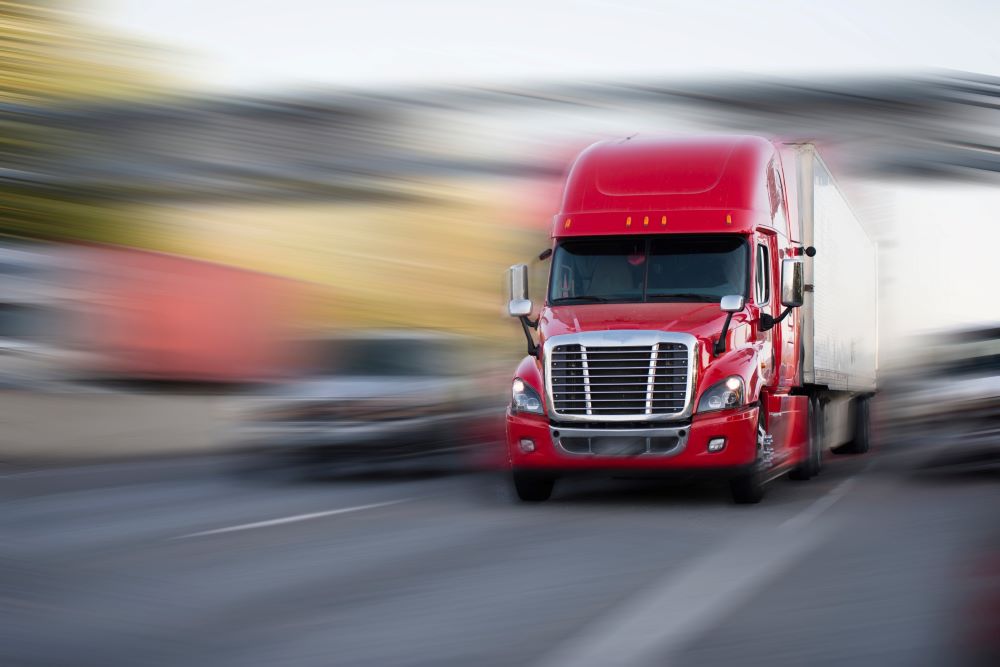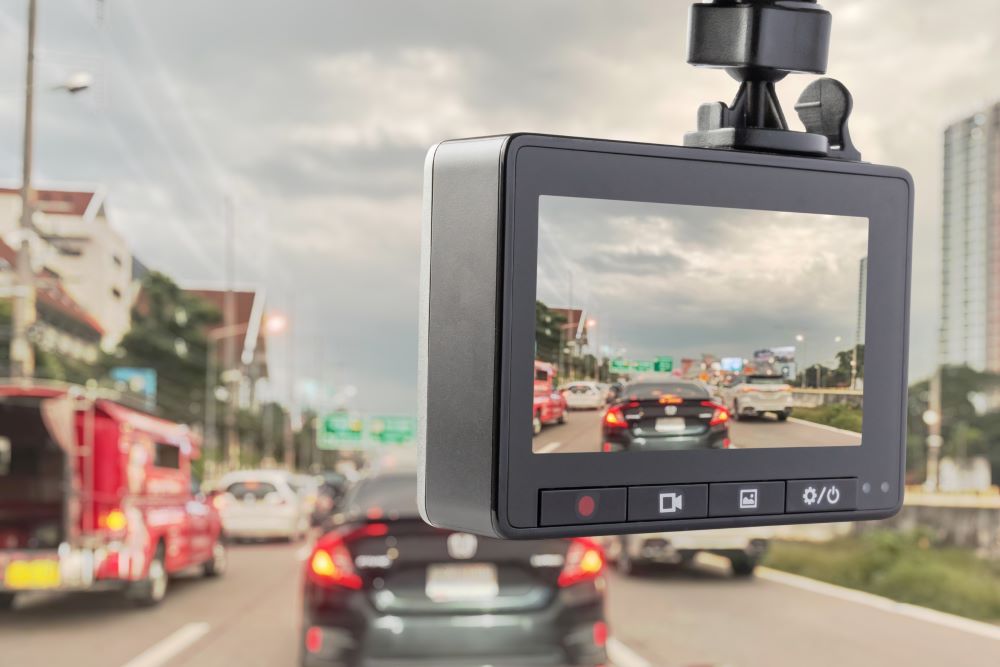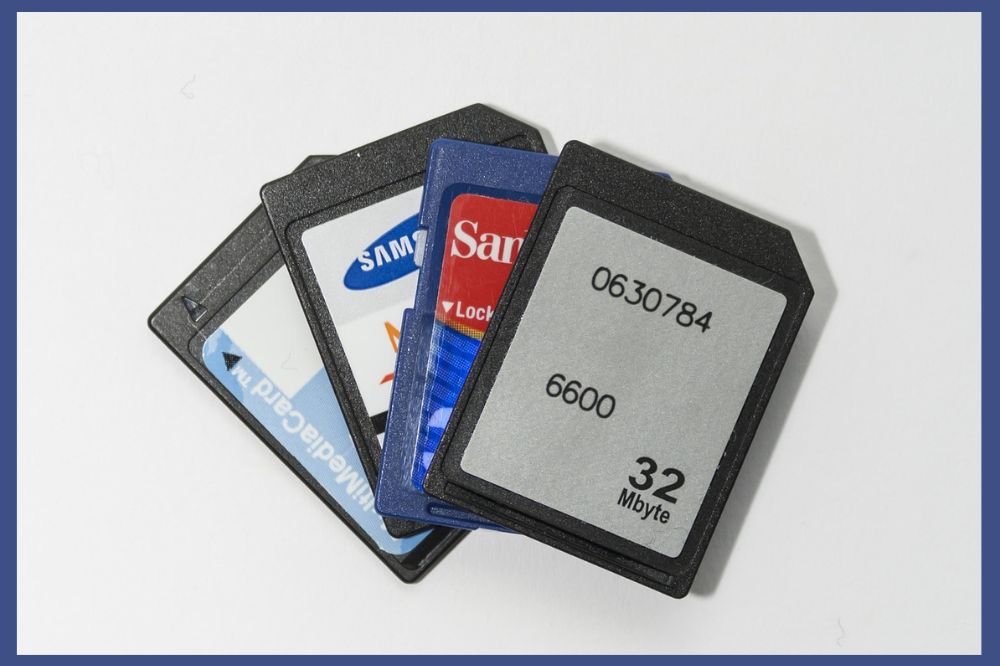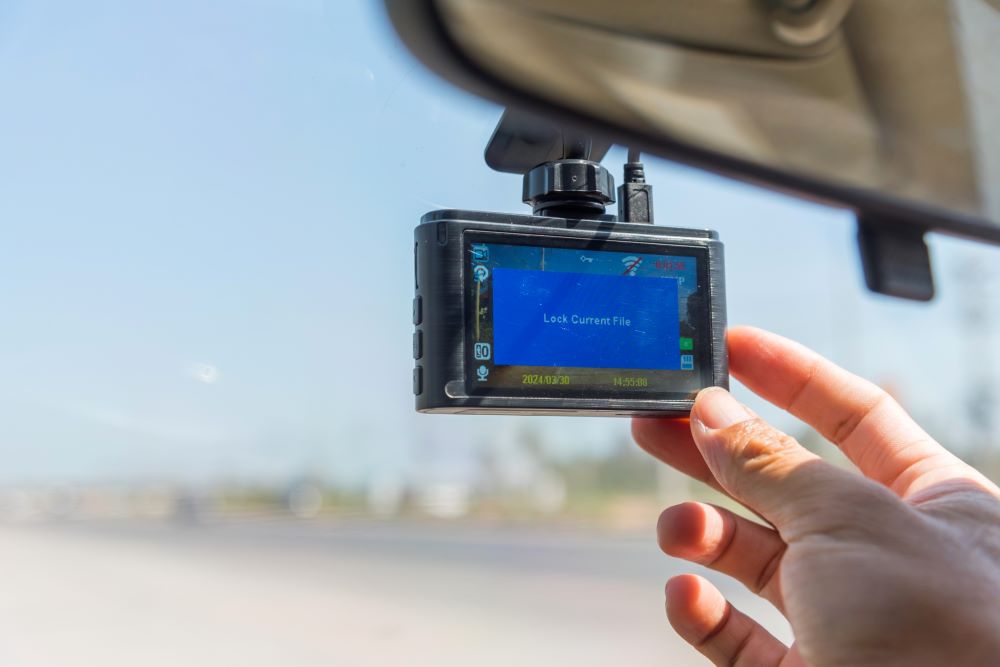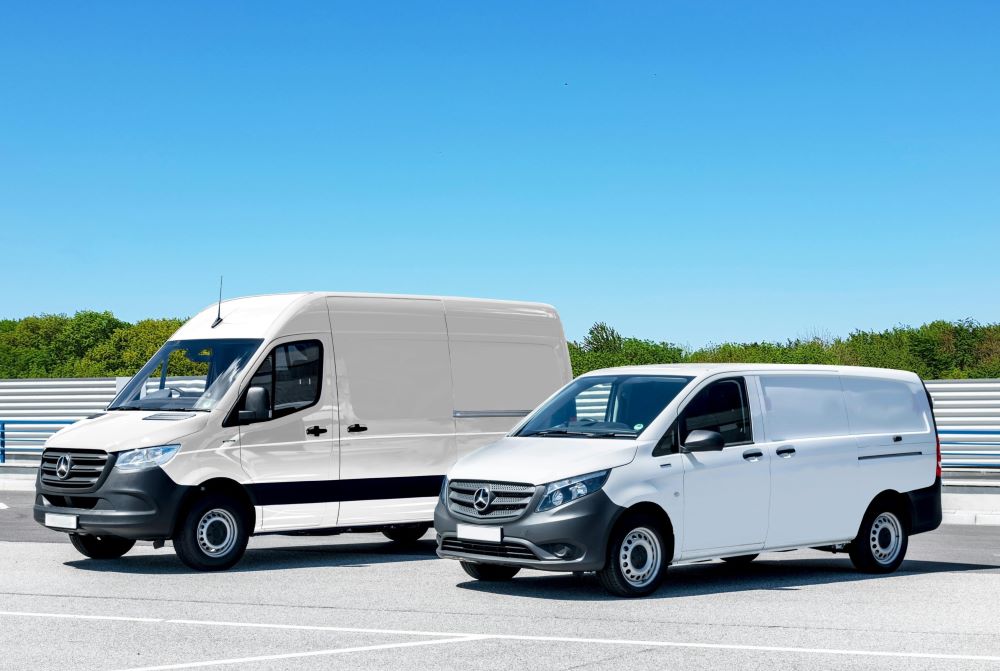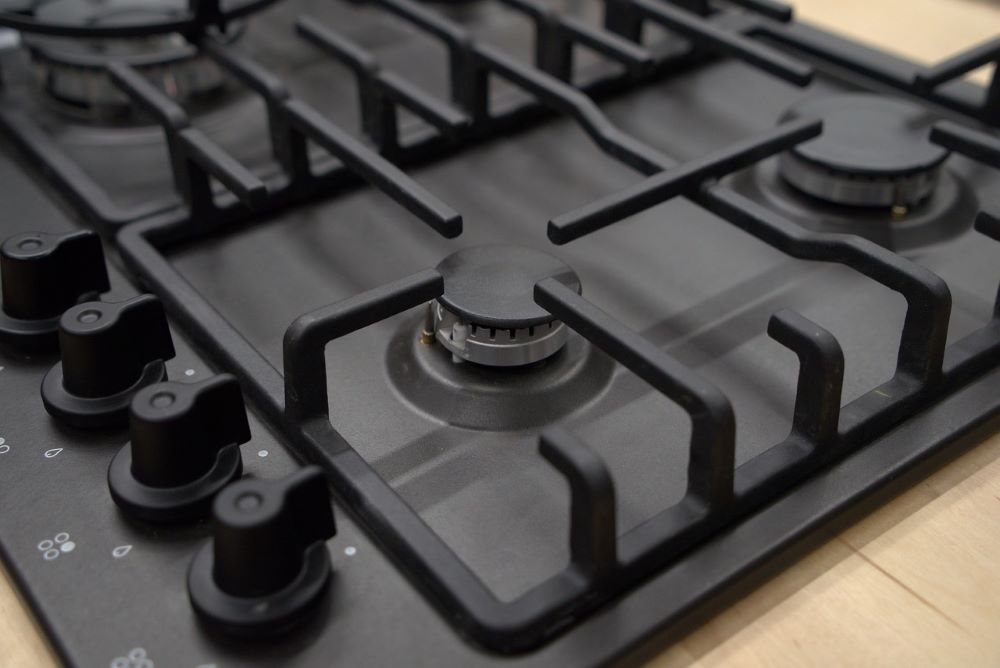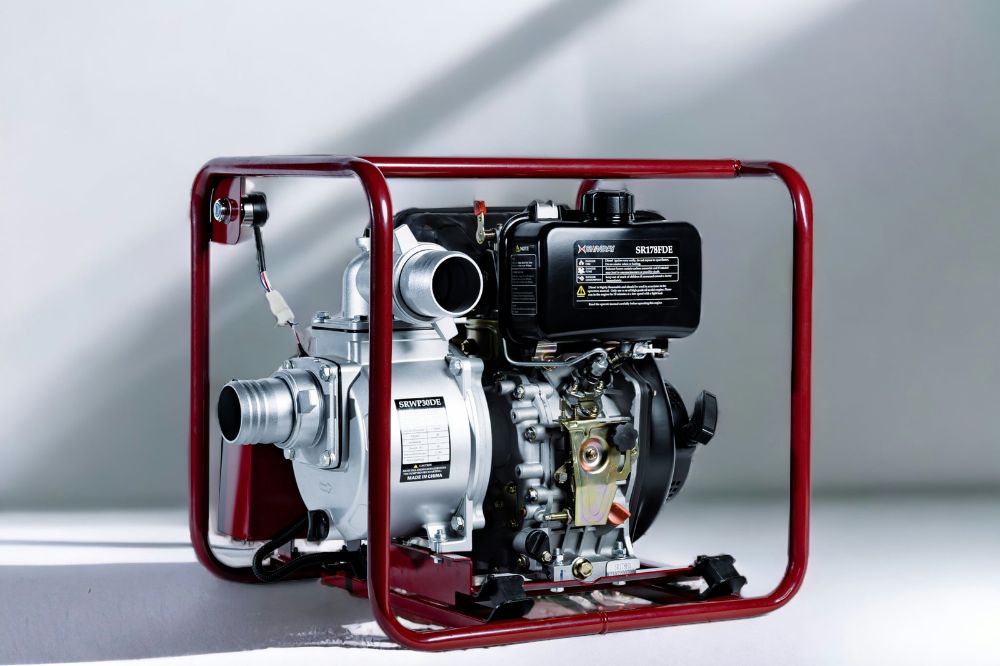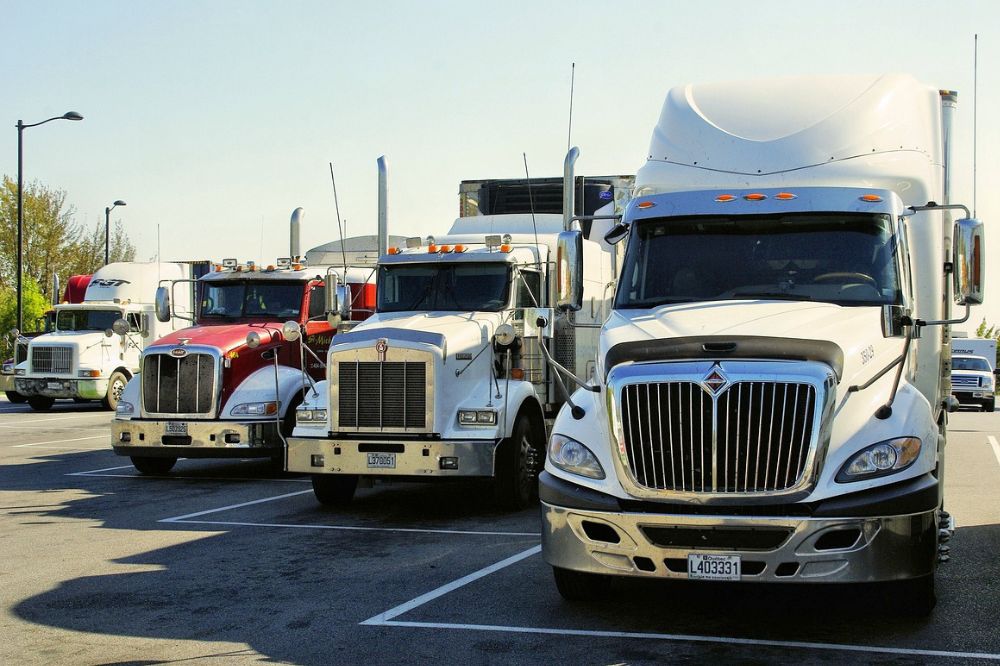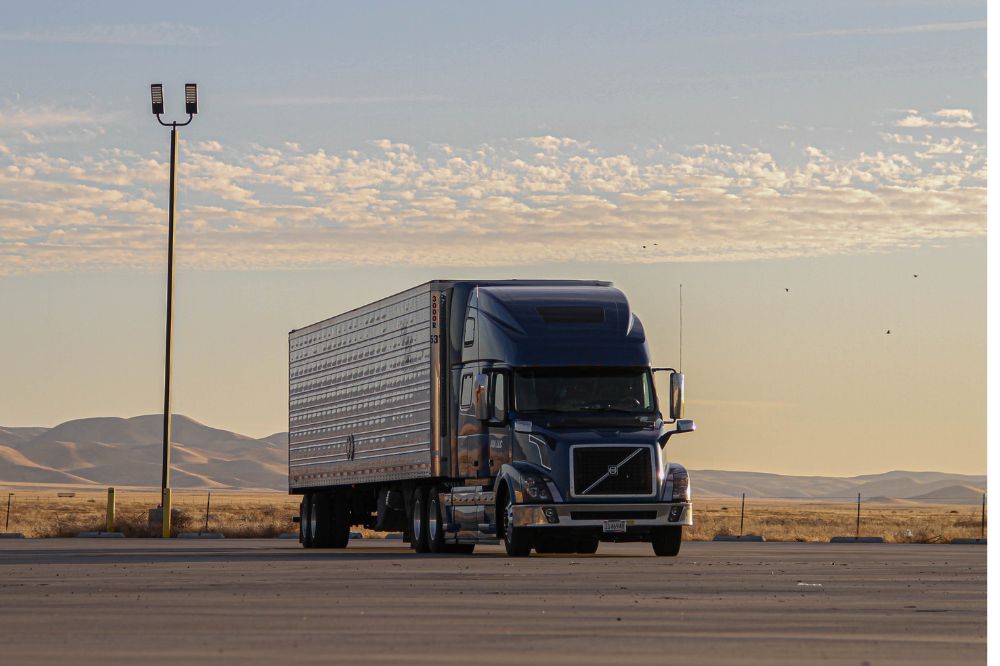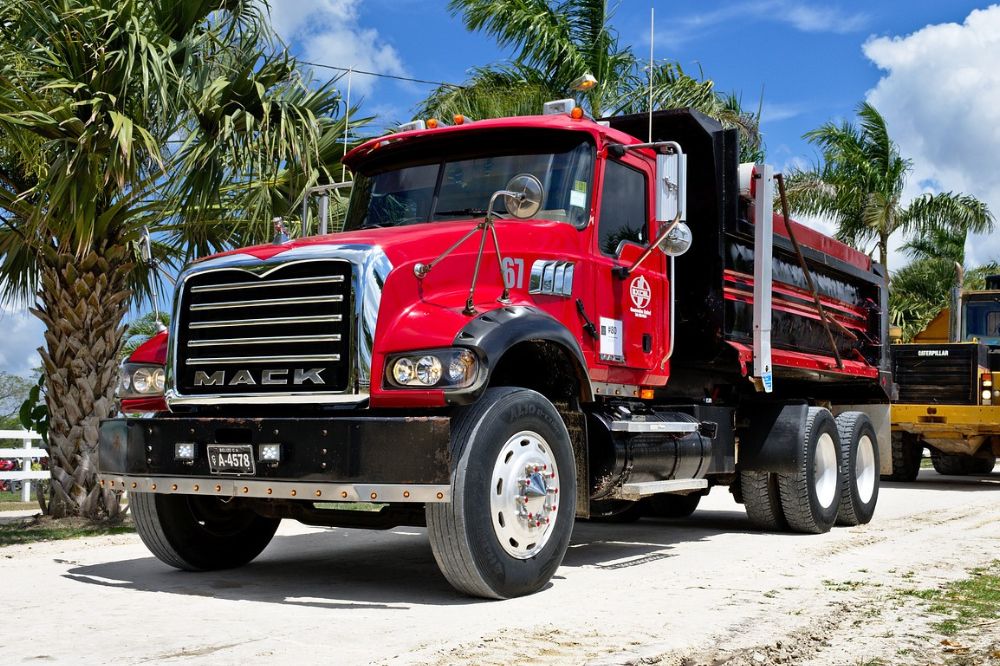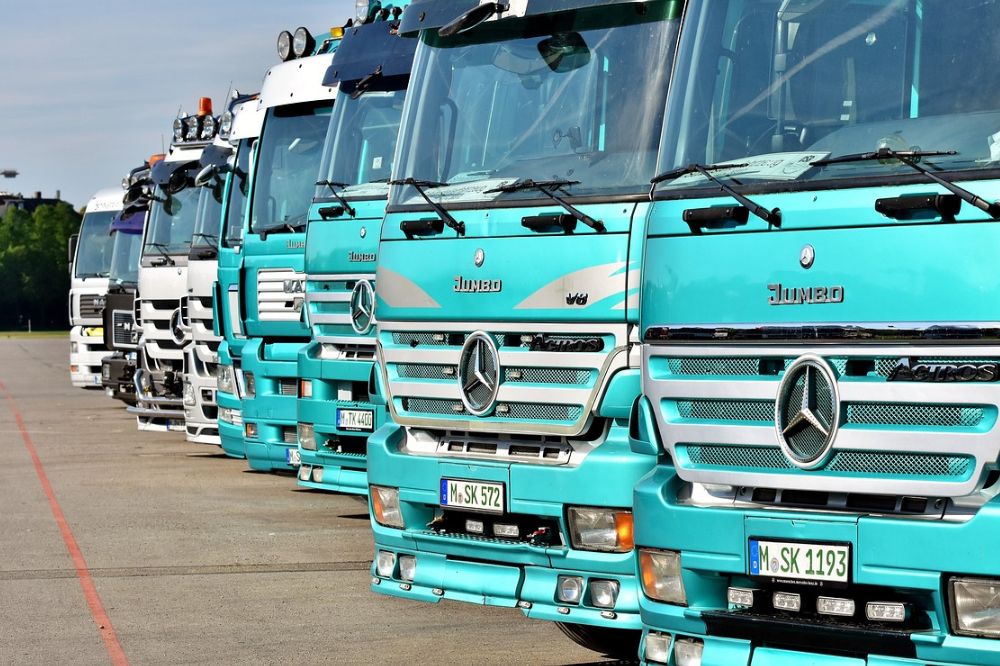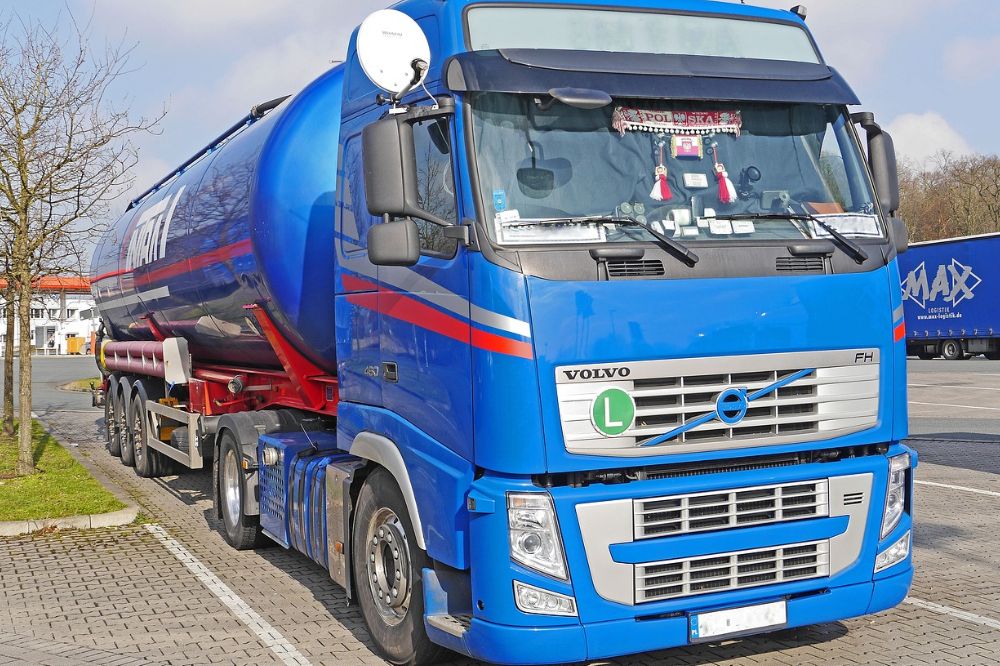Looking to boost your truck’s fuel efficiency and performance on the road? Understanding effective ways to improve truck aerodynamics is crucial.
By optimizing airflow and reducing drag, you can enhance your vehicle’s efficiency and reduce fuel costs. This article explores practical strategies and tips to streamline your truck’s aerodynamics, ensuring smoother and more economical journeys.
What are Trailer Aerodynamics?
Truck aerodynamics is a crucial concept to understand if you’re an owner-operator or fleet manager because it affects your truck’s fuel efficiency and fuel costs.
As a semi-truck moves on the open road air collides with its surfaces, creating resistance. This air resistance, often known as aerodynamic drag, slows down the semi-truck and reduces its performance. The truck then requires more engine power to push through the drag and maintain highway speeds.
To improve your truck’s fuel efficiency and lower costs, you must reduce drag so the vehicle cuts through any wind resistance effortlessly.
Reducing aerodynamic drag requires streamlining the parts of a semi-truck and trailer that influence its aerodynamics. This way, air flows past the truck instead of working against it.

Why Are Aerodynamics Important for Semi Trucks?
Paying attention to your truck’s aerodynamics is essential for the following reasons:
- Optimize Fuel Economy: Improving aerodynamics allows you to manage your fuel economy. Specifically, it reduces drag, lowering fuel consumption and increasing fuel efficiency. In the long run, this reduces operational costs and increases fuel savings.
- Reduce Gas Emissions: With optimized aerodynamics, your vehicle will cut through the air smoothly. As a result, it will burn less fuel, minimizing greenhouse gas emissions and reducing environmental pollution.
- Improved stability and safety: Increased air resistance from crosswinds can destabilize your vehicle, causing it to sway or tip over. Aerodynamic improvements prevent this by promoting smooth airflow around the truck, ensuring it remains stable.
- Less Wear and Tear: When your truck’s aerodynamics are well-optimized, the engine doesn’t work as hard since there’s less resistance to overcome. Because of this, it lasts longer.
Main Points of Drag
Understanding types of aerodynamic drag that can affect a truck’s performance is crucial as it can help you develop unique ways of optimizing your specific vehicles’ performance.
There are four primary types of drag, namely:
Form Drag: Overall, trucks with a wide open front area experience more drag than those with a pointed or round design since there’s more surface area for air to act on.
Skin Friction Drag: Skin friction drag occurs when air passes over a truck’s surfaces, with rough surfaces creating more drag due to increased friction between air particles and the surface. Smooth surfaces reduce this friction, resulting in less drag.
Interference Drag: Caused by the interaction between tractor-trailer components. Gaps and protrusions create varying airflows and resistance, increasing drag.
Induced Drag: – also known as lift-induced drag, occurs when high-pressure air below the truck flows to the low-pressure area above, creating drag.
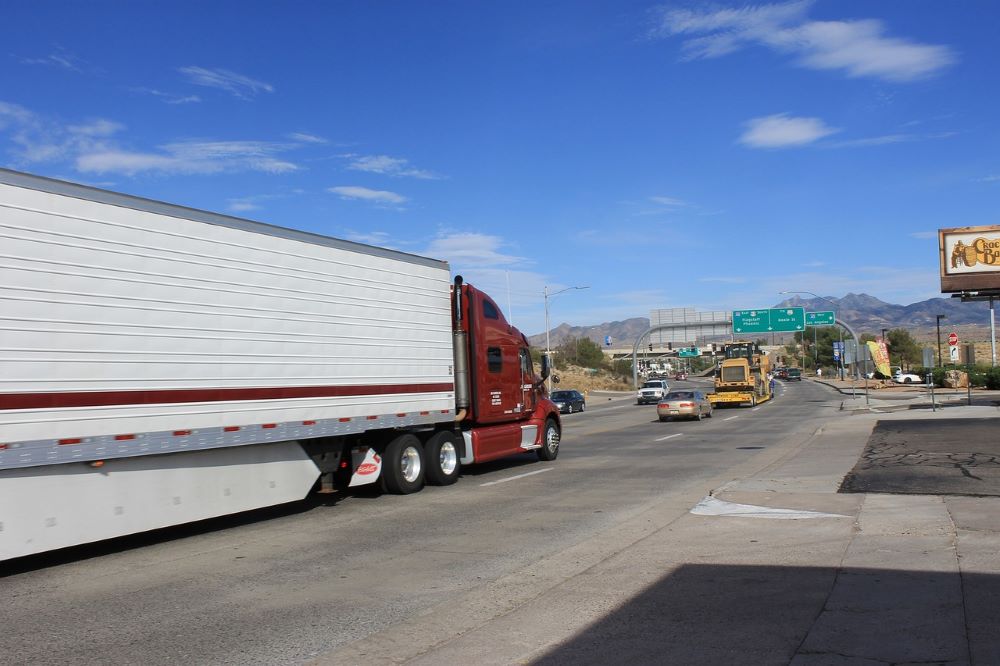
Products and Devices to Reduce Tractor-Trailer Drag
There are several products to help you modify your truck, reduce aerodynamic drag, and enhance its performance. A few of these essential devices include the following:
Trailer Skirts
Trailer skirts are panels attached to the trailer’s underside (lower side edges), between the axles, to reduce drag caused by air interacting with the truck’s wheels and other underbody structures. They redirect airflow and eliminate drag from the undercarriage. This places less strain on the truck’s drive train, reducing fuel consumption and increasing its efficiency at high speeds.
Trailer Tails
Trailer tails, often called boat tails or rear tail fairings, are devices attached to the back of the trailer to streamline airflow. They reduce air turbulence at the trailer’s rear end, preventing the formation of a turbulent vacuum that can tug the vehicle backward, creating drag. The best types of trailer tails are easily detachable to accommodate the loading and unloading of the semi-truck.
Gap Reducers
Gap reducers minimize the gap between the tractor and the trailer. An example of such devices is cab extenders.
Cab extenders get attached to the sides of the cab, pointing back and outwards, away from it. They direct airflow away from the tractor-trailer gap, minimizing drag.
Wheel Covers
Large center indentations plus other small crevices on truck wheels trap air when spinning. This disrupts airflow, increasing aerodynamic drag. Wheel covers close off these gaps, letting air flow past the wheels and minimizing drag.
A few types of wheel covers to choose from include:
- Full wheel covers – they cover the entire wheel, protecting your car from damage while reducing drag
- Center caps – only cover the wheel hub, preventing dust accumulation, which often adds to drag
- Trim rings – cover the outer rim only. These add a polished, classy look to your vehicle and reduce drag.
When choosing a cover for your wheels to reduce aerodynamic drag, consider your vehicle specifications, design compatibility, ease of installation, and durability to find the perfect balance between functionality and aesthetics.
Aerodynamic Mirrors and Cameras
Consider replacing some of your truck’s traditional features with more aerodynamic designs to lower wind resistance and reduce aerodynamic drag. For example, you can replace traditional windshields and mirrors with sloped front windshields and pedestal door mirrors to enhance the truck’s performance.
You may also opt for camera monitor systems in place of traditional mirrors. They will enhance the vehicle’s aerodynamics while improving visibility and safety. But you’ll have to be keen to ensure you comply with all regulations regarding rear visibility in cars.
Roof Fairings
Roof fairings work the same way as trailer skirts, but they’re mounted on the truck’s roof to direct the airflow over the trailer instead of on the sides. These are particularly helpful when using full-height trailers and the height of the tractor doesn’t match the trailer’s height.
The roof fairing or air deflector closes the height gap between the tractor’s roof and the top of the trailer, so air flows directly over the trailer’s top surface.
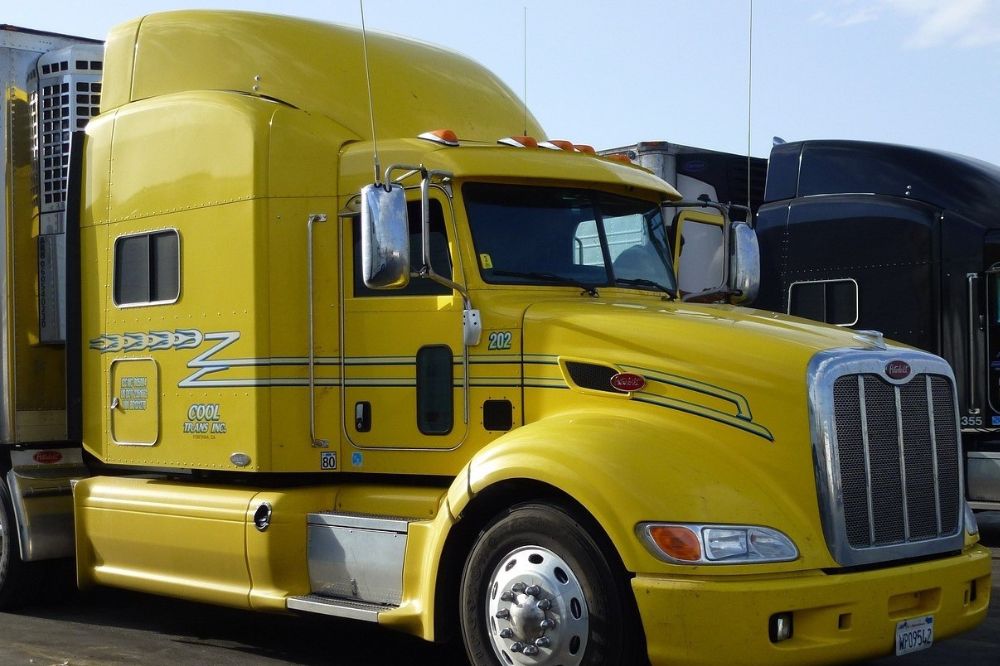
Aerodynamic Mud Flaps
Most trucks have heavy, solid rubber mud flaps to prevent road debris, dirt, and rocks from damaging the undercarriage. Consider replacing these with vented or slotted mud flaps. These allow air to pass straight through them, reducing drag.
Fifth Wheel Placement
Whether fixed or sliding, install the fifth wheel properly with enough (not too much) clearance for the trailer to swing sideways without touching the cab, trailer landing legs, or side extenders. Keep the trailer gap to a minimum, around 36 inches or less.
Aero Bumpers
Smooth aero bumpers, often called drive fenders, direct air away from your truck instead of over the cab.
Additional Considerations
Besides modifying your truck using the products and devices above, consider taking the following steps to ensure your car performs optimally.
Regular Maintenance
Installing aerodynamic components is not enough. You must ensure they’re well-maintained and functioning as they should. Walk around your trucks, inspecting all the aerodynamic features you’ve installed.
If you notice any wear and tear that can reduce a device’s efficiency, repair or replace it as soon as possible. Include this inspection as part of your daily pre-trip inspection activities.

Driver Training
Adequate driver training is crucial to reducing resistance and improving fuel consumption. Some trucking techniques that enhance aerodynamics include:
- Maintaining a constant speed and avoiding significant speed changes. Maintaining a consistent speed helps keep pressure aerodynamic drag forces low. As your truck’s speed increases, air resistance increases, and this can increase aerodynamic drag exponentially.
- Use cruise control to minimize excessive acceleration
- Keep your load height low to reduce wind resistance and ensure the truck moves smoothly.
Technological Advancements
Aerodynamic innovations are transforming the trucking industry by reducing fuel consumption and lowering carbon emissions, driving the sector toward sustainability. Truck manufacturers are designing aerodynamic trucks with advanced technologies, like electrification and autonomous systems, to minimize drag and optimize performance.
Emerging technologies, such as automated manual transmissions (AMT), improve driving smoothness and vehicle mileage, and are set to revolutionize trucking in the coming years.
Conclusion
As diesel prices continue to increase, more fleet managers and owner-operators are looking into aerodynamic improvements because of their effectiveness in enhancing fuel efficiency and cutting fuel costs.
Simple and affordable aerodynamic adaptations have a significant impact on your bottom line. For example, adding multiple devices, such as side skirts and trailer trails, can reduce your truck’s overall drag by nearly 25%, leading to an approximately 13% reduction in fuel consumption.
Instead of making the aerodynamic improvements above, you can replace your older vehicles with newer models with the latest aerodynamic features and technologies. If you choose this route, reach out to Mission Financial Services. We’ll tailor our commercial vehicle loans to your situation so you can switch seamlessly.

